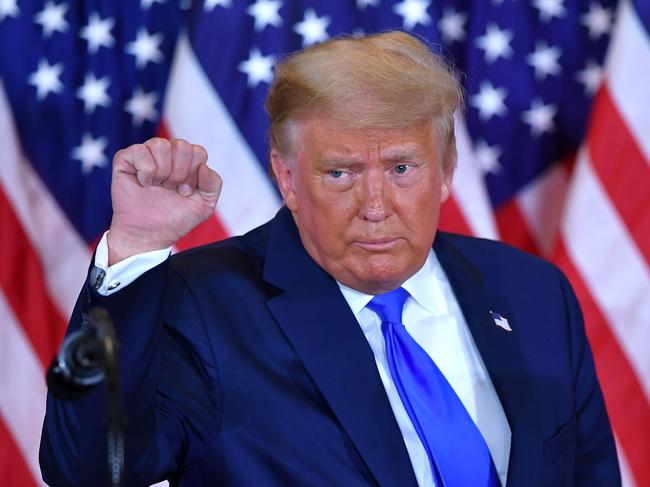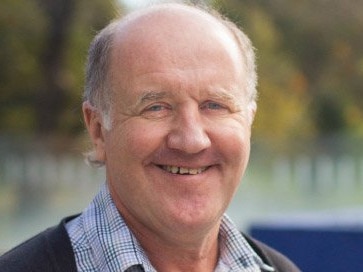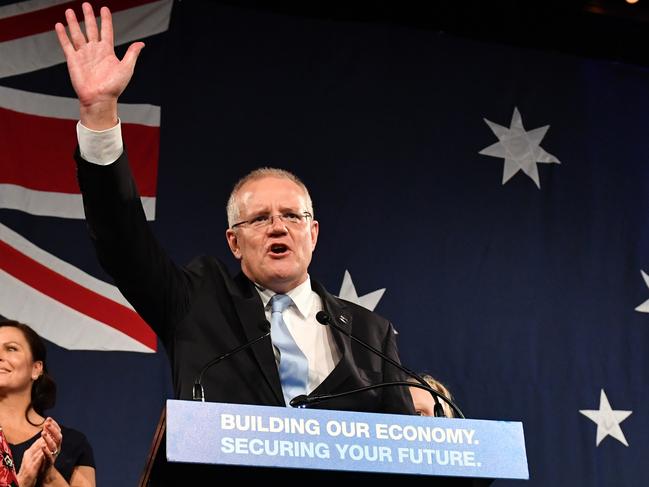How wrong polls changed politics forever
The polling industry’s performance before the 2019 federal election was a fail, but those wrong polls may have shaped politics in ways we’re still dealing with, says the head of a new inquiry.
THE likes of Julie Bishop, Christopher Pyne and Kelly O’Dwyer could still be in parliament if pollsters had not been so wrong in their predictions in the lead-up to the 2019 federal election, the chair of an inquiry into the Australian polling industry has suggested.
Australian pollsters had a 96 per cent success rate in predicting election outcomes between 2007 and 2016, but their performance in 2019 should be characterised a “failure” rather than a “miss”, the report of the inquiry stated.
Inquiry chair Darren Pennay told News Corp they deserved a ‘D’.
The polls had predicted a convincing win for Bill Shorten and Labor in 2019, and Scott Morrison’s victory was unexpected by many. On election night Morrison famously said he had “always believed in miracles”.
Mr Pennay said it “may have been the case” that of the 10 sitting Coalition MPs who decided not to contest the 2019 election, such as Foreign Minister Julie Bishop and Jobs Minister Kelly O’Dwyer, some could have been influenced by the polls.
“Perhaps for some their prospects of re-election weren’t all that great. They’d have to speak for themselves of course, but it may have been a consideration in their decision making,” he said.
The independent report commissioned by the Association of Market and Social Research Organisations (AMSRO) found that pollsters failed to correctly predict the outcome of the 2019 federal election by over-representing politically engaged and better educated voters in their samples.

The criticism comes at a delicate time for the industry, with Donald Trump decrying “fake polls” in the wake of his election loss, and pollsters in the US under fire for predicting a bigger Biden win and getting it completely wrong in states such as Florida and Texas.
Commentators have argued many Trump voters are “shy”, and reluctant to admit they support him when asked by pollsters.
Mr Pennay was sceptical that this was much of a factor, but he said some Trump supporters “are missing from the polls altogether”.
“A really hardcore Trump supporter will not participate in the poll. The polls are anathema to them, because the polls are part of the establishment, the ‘fake news’ media and all the rest of it, that they don’t want to have anything do with. They’re anti-Establishment,” he said.
Critics of polling in the US have also suggested they could suppress the vote by discouraging people to cast a ballot.

Mr Pennay said that was less of a factor in Australia because of our system of compulsory voting, but whether polls here created a “bandwagon effect”, an “underdog effect”, or an increase in tactical voting (where voters support one party in the House of Representatives but another in the Senate) was a matter for study.
“Polls are probably in the mix of things … when people make their decisions,” he said.

Campbell White from YouGov told News Corp Australian pollsters had already made changes to their processes since the 2019 election.
“Individual polling companies have made substantial changes to their methodology and their weighting schemes,” he said. “The early signs are good that these changes have been effective, for instance the performance of polls at the Queensland and ACT elections.”
Eight agencies had formed an Australian Polling Council which was developing a code of conduct for the industry, Mr White said.
The AMSRO inquiry also proposed the development of a code of conduct.
MORE NEWS
Trump planning mass rallies amid legal action
